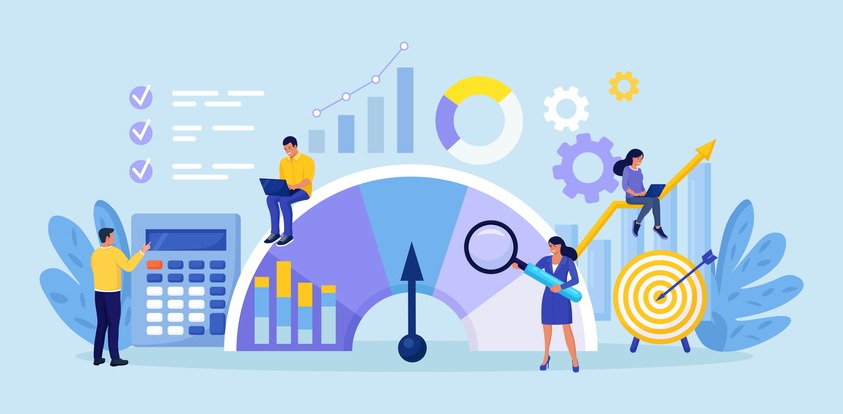
Companies lose hundreds of billions of pounds annually in employee time theft, which is often caused by distractions at work – here’s how to minimise these distractions and boost productivity
CREDIT: This is an edited version of an article that originally appeared on Business News Daily
Technology boosts your productivity in some ways, but it hurts it in others, according to a CareerBuilder study of 2,175 hiring and human resources managers across a variety of industries and company sizes. The study detailed some of the biggest distractions in the workplace that negatively impact productivity.
Distractions in the workplace extend beyond mere technology. Employees can become diverted by a wide array of factors, and even the slightest disruption to an employee’s focus can derail an otherwise productive workday.
Here’s an exploration of the top 10 workplace distractions that are incurring costs for organisations, along with additional productivity challenges, the adverse effects of distractions on efficiency and output, and straightforward methods to enhance productivity.
Top 10 workplace distractions:
Employers participating in the CareerBuilder survey identified the following as the most prevalent distractions in the workplace:
- Mobile phones
- Internet browsing
- Gossip
- Social media
- Conversations with colleagues
- Meetings
- Smoke or snack breaks
- Noisy colleagues
- Working in cubicles
Interestingly, more than half of the surveyed employers indicated that the most significant source of workplace distraction originated from employees using their smartphones, while 44% pointed to internet usage. It’s easy to comprehend how the allure of texting, mobile games, and online browsing can disrupt even the most dedicated employee.
However, technology doesn’t shoulder the entire blame for steering employees off course. The study revealed that 37% of employers identified office gossip as a significant distraction, while 27% highlighted coworkers’ impromptu conversations as a primary impediment to productivity.
Additional Workplace Distractions:
Apart from the top 10 productivity hurdles, several everyday scenarios can inadvertently divert employees from their intended tasks. Here are some commonplace circumstances that can erode productivity:
The Impact of Clutter:
The study surprisingly underscores clutter as a hindrance to workplace productivity. A disorganised desk or office can impede an employee’s concentration, limiting their capacity to process information. The chaos and disorder that arise while trying to work compromise the ability to focus on tasks, leading to stress and anxiety among employees.
To mitigate clutter-induced distractions, employees should eliminate unnecessary items from their surroundings, organise documents within appropriate folders or electronic storage systems, and consider electronic document management solutions. These solutions not only eliminate the need for physical paper storage but also maintain the systematic archiving of important files.
Hunger and Focus:
Surprisingly, hunger can also undermine focus and productivity. While it might seem productive to work through lunch, hunger can severely hamper concentration. Employers should encourage regular breaks and meals to sustain employee health and productivity.
Impact of Distractions on Productivity:
Even the slightest distraction can prolong the time needed to complete a task, as revealed by a survey from the Association for Psychological Science. Distractions not only extend task completion times but can also diminish the quality of work produced. Recognising how distractions affect employee productivity is crucial.
Diminished Sense of Productivity:
Distractions divert an employee’s attention elsewhere, requiring them to shift their focus back to the task at hand. This interruption can lead to a diminished sense of productivity, as tasks take longer to complete. Decreased productivity can lead to discouragement, which further perpetuates the cycle of reduced output.
Impact on Interpersonal Relationships:
Distractions can escalate further if unfinished work creates bottlenecks, preventing coworkers from advancing in their tasks. This can result in frustration and resentment among colleagues. Additionally, an employee’s reputation might suffer if they’re perceived as less diligent, straining interpersonal relationships.
Unresolved Distractions and Company Culture:
Unaddressed distractions can foster tension and resentment within the workplace. This can lead to decreased job satisfaction, strained relationships among coworkers, and an adverse impact on company culture.
Addressing Distracted Behaviour:
Understanding the consequences of distractions empowers employers to implement strategies for resolution. Some companies have instituted policies such as:
- Blocking specific websites
- Prohibiting personal calls and mobile phone use
- Enforcing designated lunch and break times
- Monitoring email and internet usage
- Limiting the frequency of meetings
- Adopting open-space layouts instead of cubicles
- Allowing employees to telecommute on certain days
Encouraging employees to take brief breaks can also be effective in cultivating a productive office culture. Regular breaks enable the mind to recharge and improve focus, as long as the activities chosen promote energy rather than drain it.
Employer tips for boosting productivity
Schedule breaks
Encourage employees to take breaks during the day, but make sure they set a definite ending time. This not only gives them something to look forward to, but it also lets them know when it’s time to get back to work.
Work near productive people
Productivity can be contagious. Seeing how co-workers stay productive can be an inspiration to others.
Be publicly accountable
If employees can’t seem to get motivated, try having them post their goals for the day on social media. Making themselves publicly accountable will help push them to get their work finished.
Take a walk
If workers are having trouble concentrating, have them step outside for a 10- or 20-minute walk. Previous research has shown that light exercise can rejuvenate the brain.


Be the first to comment